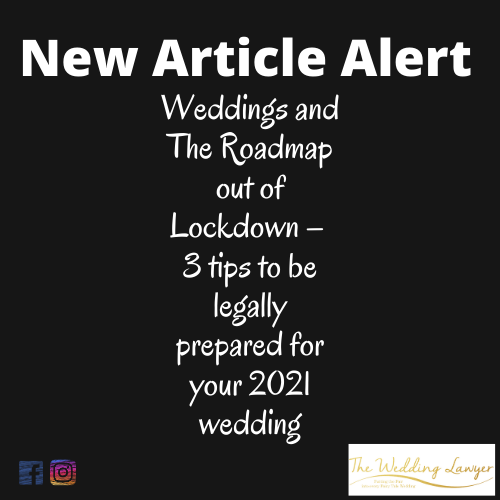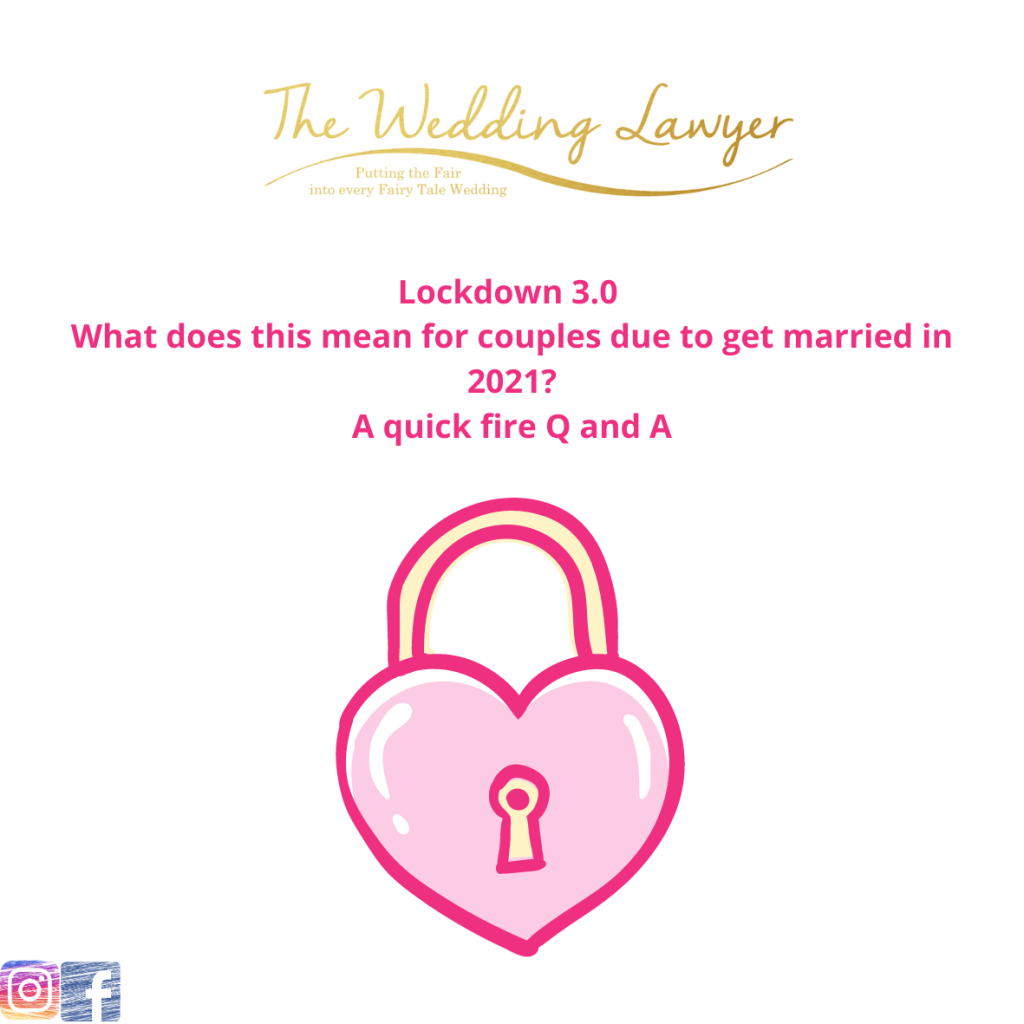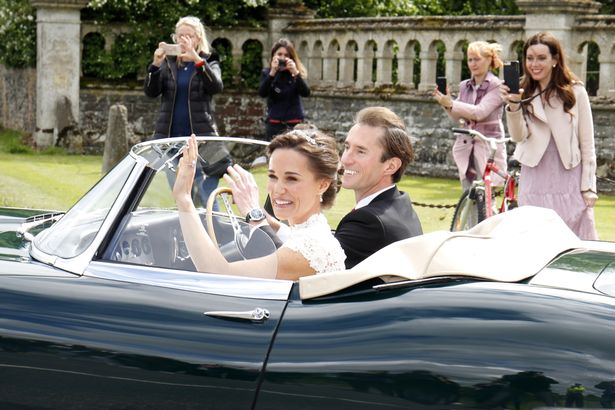Couples usually get a huge sense of relief once their venue is booked. After all, once the venue is sorted the remainder of the wedding planning can continue. However, whilst it is appreciated that there is often a need for speed when securing a venue, care should be taken before signing on the dotted line,
Look out for the below points before signing the terms and conditions with your venue. If the venue terms and conditions do not mention the below, it is recommended that you address these points with them before signing.
- Ensure you have the full Agreement in front of you
The terms and conditions for a wedding venue is usually made up of:
- The Particulars or Schedule (usually a separate document to the terms and conditions)
- The General Terms and Conditions
Both documents are extremely important. You should always ensure you have both documents in front of you when you carry out your review before signing. It maybe the case that one document cross refers to the other document, therefore to understand what you are about to sign, it is a good idea to have all the documents to hand.
The Particulars/Schedule are specific to your individual booking. Therefore, it is advised that you carefully check;
- The names of the parties are spelt correctly
- The date(s) are correct
- The Particulars clearly specify which facilities you have access to on the date(s) of your booking
- There is clarity about access times and what time you must vacate the property on the date(s) of your booking
- If you have agreed any time extensions, ensure these are clearly set out in the Particulars
- If your wedding venue is providing you with complimentary or discounted accommodation, this should also be set out in the Particulars
- The Particulars may also set out a break down of the costs of your booking. Ensure these reflect the final price that has been negotiated
- Your Rights and Obligations
- Are you allowed to bring external caterers to operate on the day? It is worth while checking this as soon as possible as catering costs can differ massively depending on whether you are required to use in-house caterers or whether you can bring your own.
- Are there any areas of the venue which are out of bounds on the wedding day? If so, could this impact you?
- What are your obligations as to music? Are you allowed to bring your own DJ? Is there any information about what time music must finish? Are there any sound limit monitors or smoke machines that could impact on the big day?
- What is the capacity of the venue? Do you have any obligations in terms of informing the venue of the final guest list numbers?
- What are your obligations as to cleaning up the venue after the big day? If this is something you are required to do, are you in a position to make arrangements with someone to oversee this process? The newly weds would probably want to jet off on honeymoon rather than oversee the clean up operation!
- Payment, Postponement and Cancellation
- Are you required to pay a deposit? If so, are you in a position to pay this? Before paying this, ensure you have got full confirmation from all important family and friends that the proposed date is suitable for them to attend. It may be difficult to change your wedding date once you have signed the contract. Also, you are advised to check any potential tube strikes, major sports matches or road works which could inconvenience your guests to making their way to your wedding.
- When is the remaining balance payable? Ensure you are in a financial position to comply with the payment schedule. If you may struggle, negotiate this prior to signing the contract. Once the contract is signed, ensure you put diary reminders in on your phone or email calendar so you do not forget to pay your next instalment.
- What happens if you cancel your booking? Ensure you are clear on your payment obligations in the event of you having to cancel your booking. You are advised to get wedding insurance for this very purpose.
- What happens if the venue cancels the booking? In the event of the venue cancelling, the venue may try to limit their liability to only cover a ‘refund’ of any fees paid which will not exceed the total fee. If this is the case, you are advised to remind the venue that you may pursue them for consequential losses if they are in breach of contract. Consequential losses may include the cost of finding a venue at last minute, reprinting wedding cards or a change of cost for wedding transportation that may have to go to a different location.
- Does the venue have the correct planning permissions to carry out the civil wedding ceremony? This should be checked before signing the agreement.
- Over-run
- Is the contract clear about what happens if the wedding over runs the allotted time allocated?
- Are you clear on the penalty? If this is not set out in the terms and conditions, ensure clarity is obtained before you sign.
- What safeguards have you got in place, in case proceedings on the day overrun? You are advised to incorporate time buffers in your timetable in case there is a delay. It may also be useful to have a timekeeper on the day who ensures the programme runs to plan.
- General clauses
- In the event of a dispute, do the terms and conditions make it clear how they will be resolved? For example, does it set out whom you can complain to and when a complaint should be made?
- If you have not met representatives from the venue, the terms and conditions should make reference to the Consumer Contracts (Information, Cancellation and Additional Charges) Regulations 2013. This means you will have the right to cancel the agreement within 14 days of the conclusion of the agreement.
For more information or assistance with interpreting or negotiating your venue contract, contact info@theweddinglawyer.co.uk











